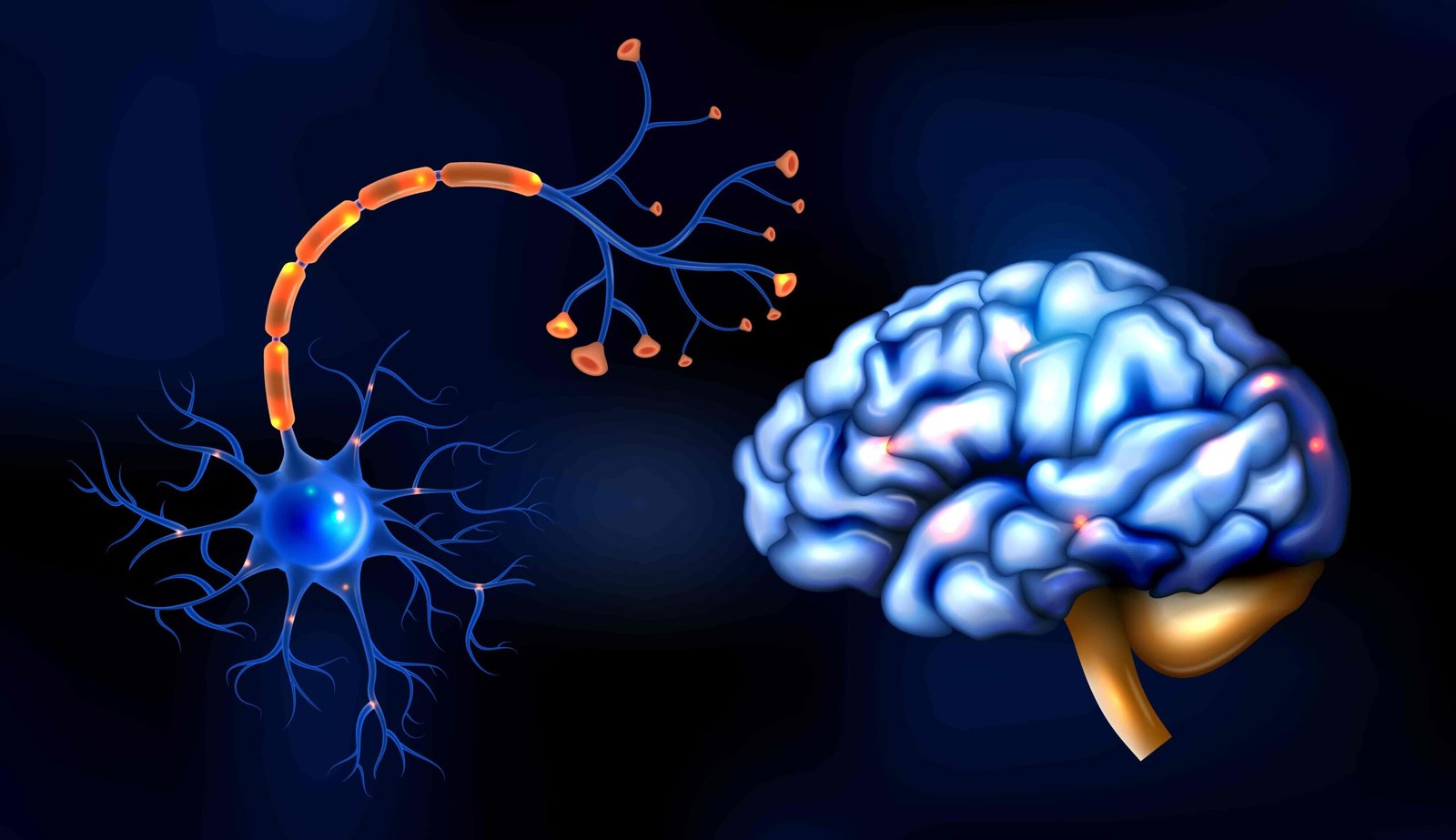Most people think of stress as something that lives in the mind, an emotional reaction to pressure, deadlines, or constant multitasking. But your body doesn’t see it that way. To your nervous system, stress is a physical signal that says, “We’re under threat.” And when that signal never shuts off, it begins to rewrite the way your body manages energy, hunger, and recovery.
This is why so many people, despite eating clean and exercising consistently, still feel sluggish or notice unexplained weight gain. It’s not just about calories or willpower; it’s about the state of your nervous system. When your body stays locked in fight-or-flight mode, hormones like cortisol remain elevated, digestion slows, and fat storage becomes a survival mechanism.
At FIT4IT, we’ve worked with countless high performers who were doing everything “right” yet couldn’t shake off fatigue, belly fat, or brain fog. Once we addressed the underlying nervous system stress through smarter recovery, better sleep, and targeted nutrition, their progress finally accelerated. Through guided recovery methods and personalized personal training plans, clients can retrain their bodies to respond calmly to stress rather than stay stuck in survival mode. That is exactly what we are going to discuss with the hidden link between nervous system stress and weight gain.

Nervous system stress triggers the body’s fight-or-flight response.
1. Poor Sleep
We all had those nights, tossing and turning, then powering through the next day on caffeine. But sleep loss is more than fatigue. When your circadian rhythm (your internal 24-hour clock) is disrupted, melatonin drops while cortisol, your stress hormone, stays high. Hunger hormones also misfire: ghrelin (the hunger trigger) spikes, while leptin (the fullness cue) plummets.
That’s why poor sleep often leads to late-night snacking and belly fat storage. Worse, even if you don’t eat more, elevated cortisol slows metabolism and fat burn. Over time, the body literally holds onto fat as a “safety shield” against stress.
- Global: 31% of adults worldwide don’t get enough sleep.
- U.S.: 1 in 3 adults regularly sleep less than 7 hours.
2. Digital Overload
Let’s be honest. Most of us end our days the same way: scrolling through emails, news, or social feeds long after we should’ve unplugged. It feels harmless, maybe even relaxing. But to your nervous system, it’s the equivalent of hitting the gas pedal when your body is begging for the brakes.
That blue light glowing from your screen tricks your brain into thinking it’s still daytime. Melatonin, the sleep hormone, gets delayed, while notifications and endless scrolling keep your brain overstimulated. Your nervous system stays stuck in fight-or-flight mode, even when you’re lying in bed.
The result? You feel “wired but tired.” You struggle to fall asleep, sleep more lightly once you do, and, if we’re being real, you probably end up grabbing a sugary snack while scrolling. Even if you don’t eat much more, the mix of high cortisol and low melatonin quietly nudges your body into fat storage mode.
- Global: On average, people spend 6.5–7 hours every day on screens.
- U.S.: Adults clock over 7 hours a day in front of screens.
3. Overuse Of Stimulants
Coffee is the fuel of corporate life. A cup or two? Fine. But push beyond 400 mg of caffeine a day (around 4-5 cups), and your nervous system pays the price, thus increasing the weight. Adrenaline and cortisol rise, deep sleep quality falls, and recovery hormones never fully reset.
This creates a vicious cycle: less sleep → more caffeine → worse sleep → more fat storage, especially around the belly. Add cravings and jittery snacking, and the “productivity booster” becomes a silent saboteur.
- Global: 80% of people worldwide consume caffeine daily.
- U.S.: 14% exceed 400 mg/day; nearly 90% consume caffeine overall.
4. Inflammatory Diet
Sugary, fried, and ultra-processed foods don’t just expand waistlines; they also inflame the gut. That inflammation signals the nervous system via the vagus nerve: “The body is under stress.” The response? Cortisol rises, insulin spikes, and instead of burning fat, your body stores it.
Even if you don’t overeat, inflammation disrupts nutrient absorption and energy regulation. When you do eat more, cravings and crashes magnify the effect.
- Global: Ultra-processed foods make up 18–68% of daily calories.
- U.S.: Adults get 53% of their calories from UPFs.
5. Overtraining Without Recovery
Without proper exercise recovery, the nervous system never leaves fight-or-flight mode. Cortisol stays high, testosterone and growth hormone drop, and muscles can’t repair.
Instead of losing fat, the body conserves it. Add sleep disruption, emotional fatigue, and overtraining, and overtraining explains why some professionals gain weight despite “living at the gym.”
- Global: 36% of high-intensity trainees report injuries.
- U.S.: 4 million HIIT injuries in 10 years; up to 60% of athletes overtrain.
6. Mental Load & Decision Fatigue
By the time you’ve made it through a day of back-to-back meetings, endless emails, and tough calls, even a simple question like “What’s for dinner?” can feel like too much. That’s decision fatigue. Your brain only has so much fuel, and when it’s drained, your nervous system flips into stress mode.
Cortisol stays high, your body thinks it’s under constant pressure, and the side effects creep in: restless sleep, sluggish digestion, and stronger cravings for quick comfort foods. Partnering with a life coach can make it easier to identify behavioral patterns that fuel stress, helping you stay consistent with healthier habits and recovery routines. Over time, this isn’t just about feeling tired; it quietly pushes your body toward storing more fat.
- Global: Roughly 4 in 10 workers say they feel stressed every day.
- U.S.: Nearly half of adults report daily stress as their norm.
7. Sedentary Lifestyle & Posture
Let’s be real: most of us sit far more than we should. Hours at a desk or back-to-back Zoom calls may seem normal, but your body reads it differently. Sitting too long weakens your breathing muscles, stiffens your posture, and lowers oxygen flow. To your nervous system, this signals: “We’re not moving, better slow things down.”
The result? Your metabolism drops, fat-burning slows, and your body stores more energy as fat. Add in those unconscious desk snacks, grabbing whatever’s nearby during long workdays, and it’s easy to see why weight creeps up even if your meals haven’t changed.
- Global: About 1 in 3 adults worldwide aren’t active enough.
- U.S.: Only 1 in 4 adults gets both cardio and strength activity each week.
8. Hidden Physical Stressors
Some stressors are sneaky; you don’t even notice them at first. Things like reflux, IBS, dehydration, or low-grade infections quietly send “distress signals” to your nervous system all day long. Your body responds by raising cortisol, slowing digestion, and storing fat for “protection.”
And because these issues are uncomfortable, many people try to soothe them with late-night habits, snacking, sipping milk, or grabbing quick fixes. The relief feels good in the moment, but over time, it adds extra calories while the root problem remains.

Over time, the constant state of alertness leads to poor sleep, fatigue, and hormonal imbalances.
- Global: GERD affects nearly 1 billion people globally.
- U.S.: Around 1 in 5 adults experience reflux regularly.
The nervous system is the hidden switchboard of your health. When it’s calm and balanced, fat burns efficiently, energy flows, and recovery happens naturally. But when chronic stress piles up, from poor sleep, screens, stimulants, or diet, it silently rewires your body toward survival mode, fat storage, and burnout.
The good news? Each of these stressors can be reversed with the right plan. At FIT4IT, we help executives build nervous-system-first strategies: optimizing sleep, balancing recovery, personalizing nutrition, and restoring calm to the body’s control center.
Because when your nervous system resets, everything else, energy, focus, and weight loss, falls into place.
References & Further Reading
- American Psychological Association – Stress in America: The State of Our Nation.
- National Institutes of Health (NIH) – The Impact of Stress on the Body.
- Mayo Clinic – Chronic Stress Puts Your Health at Risk.
- PubMed – Effects of Sedentary Behavior on Health Outcomes.
Was this helpful?
Good job! Please give your positive feedback
How could we improve this post? Please Help us.






No Comments